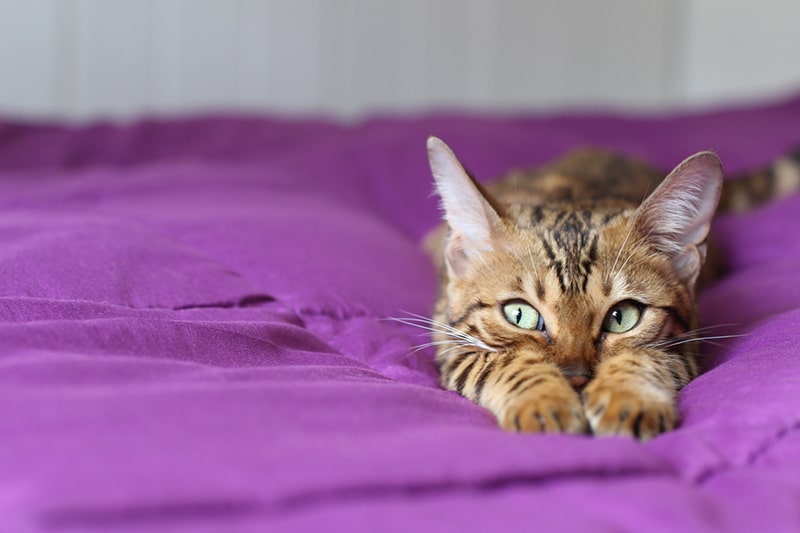Hip Dysplasia in Cats Facts: Diagnosis and Treatment
Although it’s more often seen in dogs, cats can have hip dysplasia.
Like people, cats can suffer from mental health issues, such as depression and anxiety. Find out how you can tell if your cat is struggling emotionally and what you can do about it.
Of course, we can’t know for sure what goes on in our cat’s minds, but they can certainly show signs of deep sadness and depression. Cat depression can be hard to identify, especially if your cat is the loner type who likes to hide. Some common cues that your cat may be depressed include:
If you notice these signs, you should visit your veterinarian. These same symptoms can indicate a health condition, which needs treatment. Your veterinarian can also advise you on how best to deal with your cat’s depression.

Depression in cats is often a temporary response to a change in their life. Some cats are quite sensitive, and they can experience mild depression over what seem to us like small things, such as moving their litter box or outfitting them with a new collar. Other examples of major changes that can trigger depression in cats are:
In some cases, such as a short-term visitor or home improvements, you may be able to wait out whatever is stressing out your cat. If the change is permanent, they may go back to their happier selves after some time to adjust.
First, you should visit your veterinarian to rule out any underlying illnesses. They can also help determine the best approach to helping your cat, which could include anti-anxiety medication. Other things you can do to help a depressed cat include:
While you may be able to cheer your cat up, you may not be able to shake them out of their depression completely. They may still need time to process a life change or recover from the event that triggered their sadness. Don’t hesitate to reach out to your veterinarian with any concerns.
You may hear people talk about cats who died from a broken heart after a traumatic loss, like the death of their caretaker or a feline companion. Depression itself isn’t fatal, but it can cause your cat’s health to deteriorate to a dangerous point. For instance, cats who refuse to eat or drink may lose an unhealthy amount of weight or become dehydrated. These issues can usually be prevented by early intervention with the help of your veterinarian.

There are people who advertise themselves as cat therapists or psychologists. These folks may be well-meaning, but their titles don’t indicate that they have the skills or training necessary to help your cat.
Always consult your veterinarian first who can refer you to an expert such as a veterinarian with advanced training, certified as a diplomate of the American College of Veterinary Behaviorists.
Similar to depression, cats may experience anxiety after a change in their environment or lifestyle. Traumatic accidents, scrapes with other animals, or frightening experiences can also trigger anxiety in cats. Symptoms of anxiety in cats can include:
If your cat is experiencing these symptoms, you should visit your veterinarian to check for an underlying health condition and get guidance on managing their anxiety.

Cats with depression or anxiety may develop compulsive behaviors. They can also be caused by boredom, fear, frustration, or other negative emotions. Common compulsive cat behaviors include:
Compulsive behaviors may develop as a coping mechanism, which can offer your cat some short-term relief from their anxiety. If the behavior is not hurting them or disrupting your household, you may not need to intervene. Otherwise, you should bring your cat to the veterinarian.
Your veterinarian can help you figure out the right approach to treating your cat’s compulsive behavior and whether or not anti-anxiety medication would be useful. Other things you can try at home include:
If your cat has a mental health issue, pet insurance can help you manage the costs of treatment, including medication. Learn more with a free quote.
An ASPCA® Pet Health Insurance plan can help you with eligible costs for covered conditions like surgery expenses for accidents and help provide peace of mind that your pet can receive the care they need. Check out our online resources to learn more about your insurance options and get a free quote today. The information presented in this article is for educational and informational purposes only and does not constitute or substitute for the advice of your veterinarian.